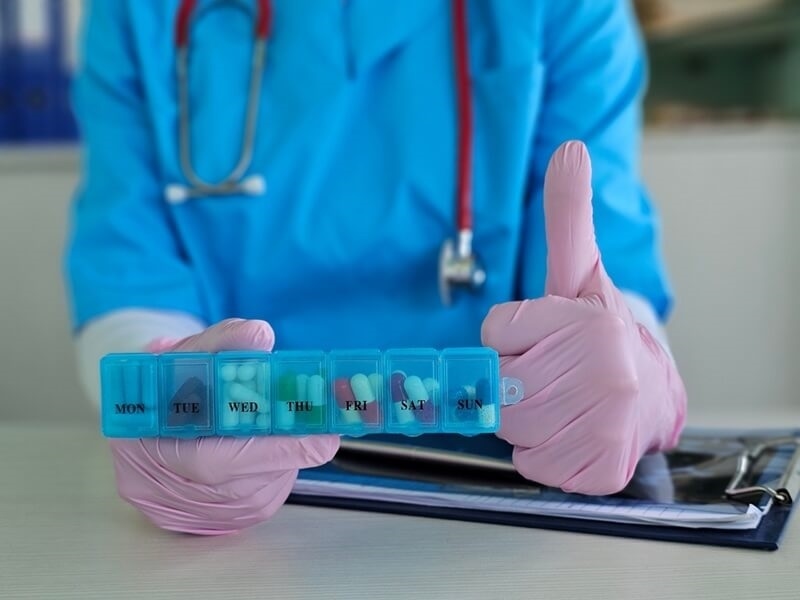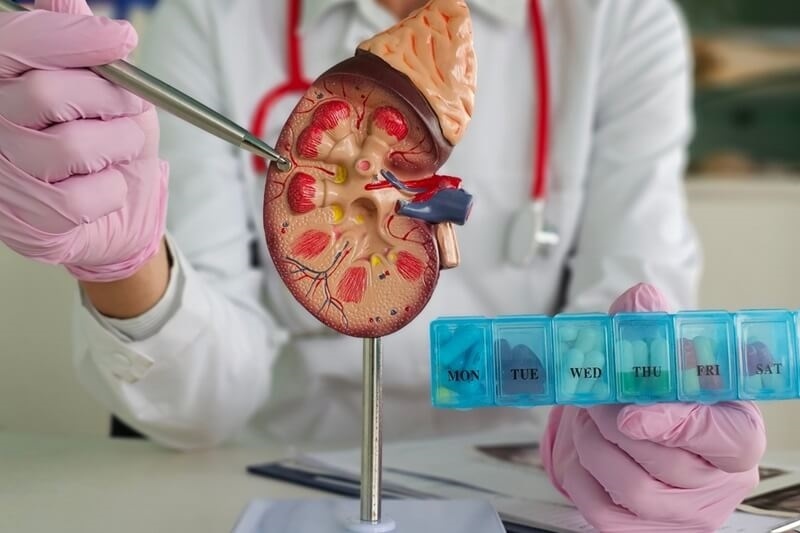
Today, medicines are the most instrumental tools in the management of health, the control of diseases, and the uplift of the quality of life. Yet, medicine use without proper knowledge may lead to errors, side effects, or even cause serious injuries. This is why medication literacy becomes the need of the hour. It helps patients know the correct method of taking medicines safely, be aware of their use, and adhere to the right instructions.
This manual will explain medication knowledge, the reason for its importance, and the ways through which patients can practice safe drug use.
Medication knowledge/literacy refers to the possession of sufficient knowledge and aptitude to locate, grasp, and apply the correct information on the consumption of medication. It is not just about interpreting labels but also understanding the medication's purpose, taking it in the correct manner, and knowing when to get help.
A person with good medication knowledge can:
Patients become more confident in the handling of medicines when they acquire this skill.

Medicines are great assistants for the treatment of various diseases; however, they are risky tools as well if they are used incorrectly. The lack of knowledge is usually the source of the mistakes that are made, such as overdosing, mixing drugs that are not compatible, and stopping treatment too early.
Medication literacy improvement helps in the following ways:
People who receive patient education know that they have a say in their healthcare, and they are less likely to rely on their intuition when it comes to medications.
Good health knowledge is the pillar of safe drug use. Patients should not only know the medicines that they use, but they should also have a full understanding of the condition that the medicines are treating. For instance, a person who is suffering from high blood pressure should know why he/she needs the medication, how it is going to lower the blood pressure, and what the consequences are if he/she stops the medication without the doctor’s approval.
Knowledge is power, and the safer the patients get, the more they know.
One main hurdle for patients is understanding the prescription. At times, prescriptions are written in a language that is full of complicated medical terms or abbreviations that are hard to understand. Patients might incorrectly calculate the dose or the timing of the medication which can result in errors.
To enhance prescription understanding:
Asking, “Can you please explain this in simple language?” is a tiny step that is very efficient in eliminating mistakes.
Safe Usage of medicines is at the center of medication literacy. Hence, patients must be educated on how to use their medicines properly and how to keep them properly. Even the smallest details, such as taking a pill with food or on an empty stomach, can have an impact on the drug’s effectiveness.
Patients who observe these practices are lowering the chances of being subjected to the risks, and they make sure that medicines are working well.
Drug safety implies that the patient is kept safe from damage caused by the wrong use or low-quality drugs. Even regular medications, for example, painkillers, can be dangerous if the patient has taken them too frequently or in large quantities.
Increased drug safety requires:
Drug safety is not only the responsibility of doctors but also of patients who must follow instructions carefully.
Some common mistakes that patients make are in the presence of exceptions. Also, these errors include:
Mistakes are avoidable when patients put strong medication knowledge into practice and take medication safely every day.
The need for family or caregivers' support is particularly felt with patients who are elderly or children. Good medication knowledge is also necessary for caregivers so that they can:
Psychological assistance by the family can play a vital role in securing drug safety and risk reduction.
Patients can strengthen their medication knowledge capabilities by taking some simple steps.
Through the medicines they are taking, doctors and patients should always work together to decide if it is necessary to continue taking medicines.
These little moves shape daily safer habits and make botches a rarity in daily life.
Doctors, nurses, and pharmacists must actively promote medication literacy, and such activities may include:
Healthcare providers who are patient-centered in educational initiatives not only have higher treatment efficacy but also create a stronger relationship of trust with their patients.
Medication knowledge goes beyond just understanding a medicine’s label. It inculcates health knowledge, builds confidence in accurately interpreting prescriptions, and every day, practicing safe usage. Less informed patients are more prone to fall into traps of mistakes, while better health outcomes become a reality when patients are well-informed.
By making medication knowledge a priority, patients take an active role in protecting their health and using medicines in the safest way possible.
This content was created by AI